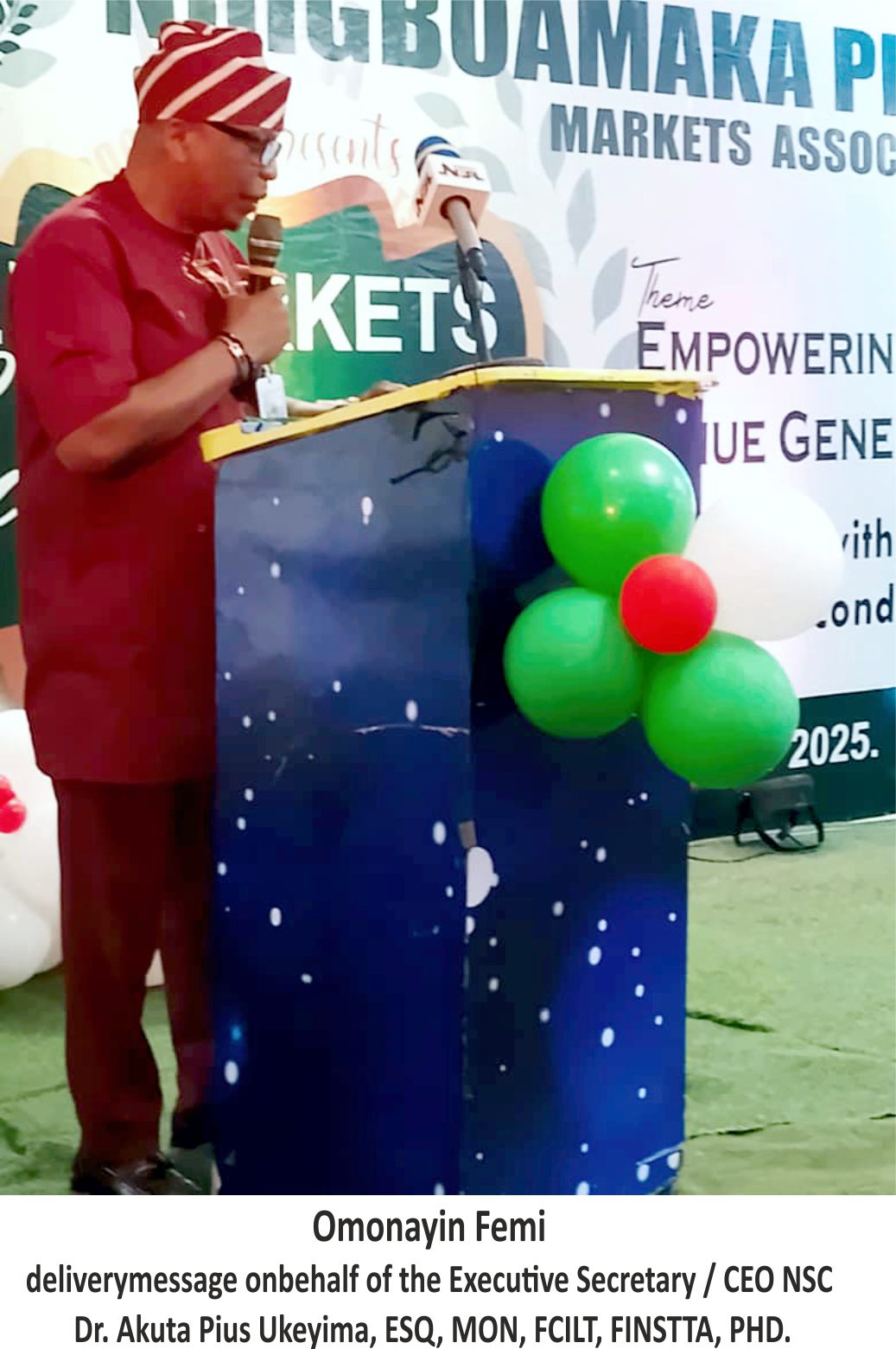 The Nigerian Shippers’ Council (NSC) played a pivotal role in the recent NDIGBOAMAKA PROGRESSIVE MARKETS ASSOCIATION CONFERENCE, emphasizing its position as a Port Economic Regulator driving import/export facilitation and trade union empowerment for revenue generation and modernization.
The Nigerian Shippers’ Council (NSC) played a pivotal role in the recent NDIGBOAMAKA PROGRESSIVE MARKETS ASSOCIATION CONFERENCE, emphasizing its position as a Port Economic Regulator driving import/export facilitation and trade union empowerment for revenue generation and modernization.
Presented by Omonayin Femi on behalf of the Executive Secretary/CEO of the Nigerian Shippers’ Council, Dr. Akuta Pius Ukeyima, the paper delivered on October 15, 2025, at the Festival Hotel and Conference Centre, Amuwo Odofin, Lagos, underscored the NSC’s multifaceted efforts.
The Role of the Nigerian Shippers’ Council as Port Economic Regulator in Facilitating Import/Export and Empowering Trade Unions for Revenue Generation and Modernization
Distinguished Ladies and Gentlemen, it is a privilege to be here today and also to present this paper on the critical role of the Nigerian Shippers’ Council (NSC) as the Port Economic Regulator. Trade remains the engine of economic growth. For Nigeria to remain competitive in the global market, the efficiency of our ports and the vibrancy of our trade unions are non-negotiable. The Nigerian Shippers’ Council stands at the center of this equation, ensuring that trade flows are facilitated, costs are fair, and all stakeholders are empowered to contribute meaningfully to nation revenue and modernization.
The core responsibility of the council is to promote efficiency, transparency, and fair competition in the port system. And in carrying out our responsibility, the NSC plays a pivotal role in ensuring smooth trade facilitation through regulation of tariffs and charges, promoting efficiency at terminals and shipping lines, policy advocacy, encouraging automation and modern platforms to cut bureaucracy and improve transparency, etc.
The impact of these efforts is a reduction in trade barriers, enhanced competitiveness of Nigerian exports, and a more reliable import system for industries and consumers. Trade unions, like Ndigboamaka Progressive (Markets) Association, are key partners in the maritime industry. Their role in labor, logistics, and service delivery directly affects port performance. The Council supports and empowers trade unions through structured engagement, capacity building, conflict resolution, and inclusion in policy development.
The combined effect of port efficiency and empowerment trade unions translates into measurable outcomes for the Nigerian economy, including increased government revenue, attraction of investment, creation of decent jobs, modernization of port facilities, and positioning Nigeria as a competitive hub for West and Central African trade.
Distinguished audience, the Nigerian Shippers’ Council, as Port Economic Regulator, is not just a referee of tariffs but a catalyst for trade growth. We are active in ensuring the facilitation of import and export, empowering trade unions, and driving modernization; the Council is contributing to nation revenue generation and positioning Nigeria for global competitiveness. Let us continue to support ourselves as we build a maritime industry that is efficient, fair, and capable of powering Nigeria’s economic future. Thank you.


